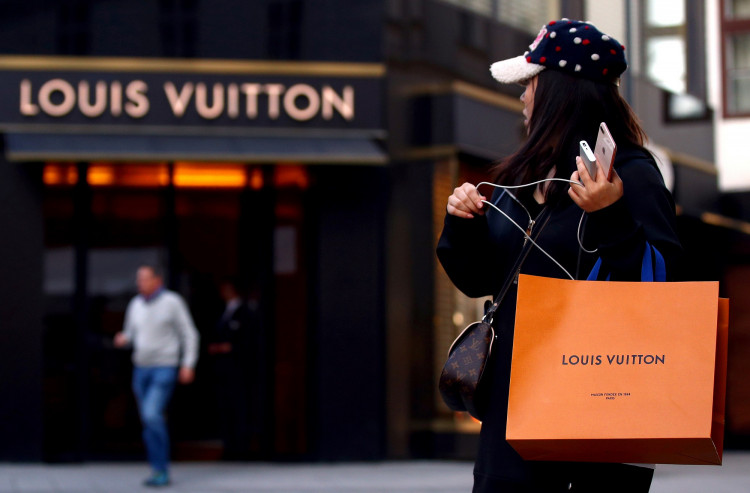In the context of a global economic slowdown and consumers tightening their belts, the luxury goods market, from LVMH to Kering Group, is facing a downturn. On December 1, Morgan Stanley downgraded LVMH Group's rating from "Overweight" to "Equal-weight," setting a target price of 790 euros. This marks the first time in six years that Morgan Stanley has downgraded LVMH's rating.
Morgan Stanley analyst Edouard Aubin, in his report, cited concerns about weakening demand in the luxury goods sector as the reason for the downgrade. He adjusted the target price from 860 euros to 790 euros, below the market consensus of 842 euros. Aubin anticipates that the luxury goods industry might see further deterioration in demand in the fourth quarter, making the start of 2024 challenging for LVMH. He expects the stock price to fluctuate sideways in the coming months.
Morgan Stanley is not alone in its assessment. Earlier this week, HSBC also lowered its expectations and price targets for the luxury goods industry, stating that European luxury stocks are not immune to economic recession. UBS recently downgraded LVMH's rating to "Neutral" with a target price of 770 euros, expressing concerns about the outlook.
At the time of writing, LVMH's stock had fallen 0.11% to 699.60 euros. Despite a year-to-date increase of 1.61%, the stock has fallen 28.8% from its high of 901 euros earlier this year.
In October, LVMH released its third-quarter financial report, showing revenues of 19.96 billion euros, below analysts' expectations of 21.14 billion euros. The organic revenue growth for the existing business was 9%, slowing down to 14% for the first three quarters of the year.
Wall Street has noted that this is the first time this year that LVMH's revenue has fallen short of expectations. The third quarter also saw the lowest growth rate, with revenue increasing by 17% in both the first and second quarters, almost double the rate of the third quarter.
LVMH's CFO, Jean-Jacques Guiony, stated after the third-quarter report that following three years of rapid growth, the company's growth is moving towards a level more in line with historical averages. Regarding the outlook for luxury goods, Guiony mentioned that global high-net-worth customers are facing some pressure, particularly in the United States, where consumption has been very weak this year.
Meanwhile, the capital market's enthusiasm for luxury stocks is also cooling down. On September 1, just over four months after LVMH became the first European company to reach a market value of over 500 billion euros, Danish pharmaceutical company Novo Nordisk, known for its weight-loss drugs, surpassed LVMH in closing market value, becoming Europe's highest-valued listed company.






